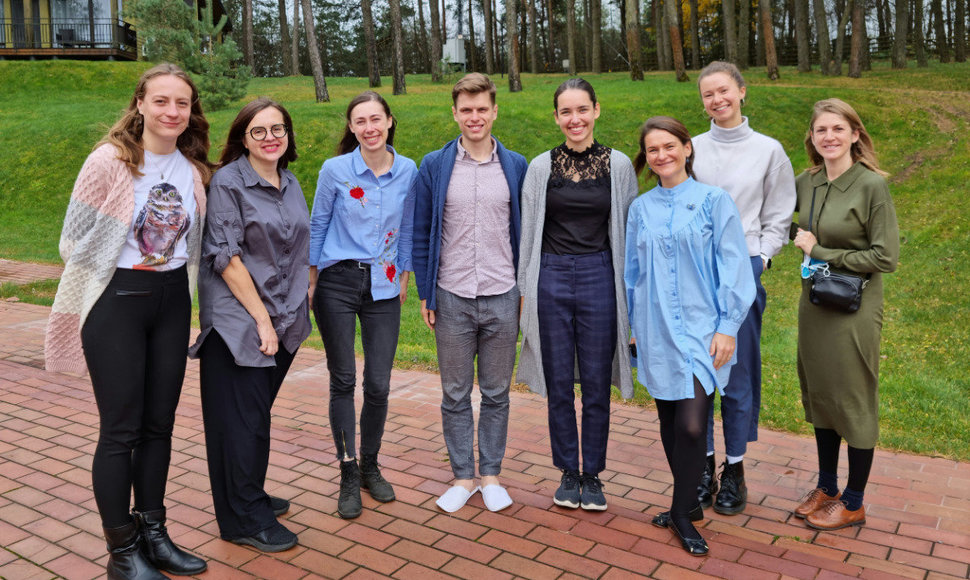The project is financed the Nordic Council of Ministers Office in Lithuania Support Programme for NGO Cooperation between the Nordic and Baltic Countries. It aims to reinforce the cooperation of social enterprises and non-governmental organisations dealing with environmental conservation and climate change issues.
"We had the exceptional opportunity to share the experience with our partners from Estonia, Latvia, and Sweden, who are the best experts in their topic areas, on how to enhance the social enterprise ecosystems in our countries. We analysed and exchanged best practices on how we are faring in encouraging cooperation between the members of our individual organisations during the meeting. Furthermore, we discussed ways to strengthen cooperation between our members and other social enterprises, as well as non-governmental organisations," LISVA head Viktorija Bražiūnaitė shared her impressions of the meeting.
The head of the Social Entrepreneurship Association of Latvia Regita Zeila emphasised the importance of international cooperation: "I'm truly happy that Baltic cooperation brings more visibility to the field and allows us to be stronger together for the sake of social entrepreneurship development! In June, we were organising the Baltic-UK Social entrepreneurship forum and saw the impact that coordinated actions can make, both on social enterprises and also on our organisations and advocacy activities. Cooperation is the key, and we should follow up on these activities."
Tove Nordstrom, a partner from the Swedish organisation SE Forum, noted that only by learning from one another can we expect better results: "Sharing similar challenges to explore joint opportunities in the Nordics and the Baltics is an interesting and inspiring way to find solutions to our social and environmental challenges. As support organisations, we've got a lot to learn from each other, and we believe we're stronger together, so we are very much enjoying creating an ecosystem that encourages collaboration."
Estonian Social Enterprise Network board member Erkki Kubber shared observations of how the appeal of social enterprise continues to grow, but it is something that must continue to be encouraged and supported: "Social entrepreneurship is growing bigger every year. Since this is a trend to capture and help grow, we must be on the same page between the Baltics and Nordics. So, we are glad to put a starting point to that."
LISBA Head V. Bražiūnaitė was pleased to have established closer relations with foreign partners, discovered new avenues of cooperation, and developed methods to promote cooperation. "The stronger our organisation, the more opportunities we will have to help social enterprises in our country develop; we will be able to represent them and defend their interests suitably," the association Head stated.
After the meeting, a compendium of good practices will be prepared to publicly showcase successful examples of how social businesses working in the fields of environment, ecology, and circular economy work together to generate new ways to foster collaboration. All social enterprises and non-governmental organisations will be able to use this document.
Also involved in this project are the representatives of organisation Geri Norai Jurgita Ribinskaitė-Gatzer and Rūta Žulpaitė and Klaipėda University Faculty of Social Sciences and Humanities, Department of Economics docent Rasa Viederytė (associated project partners).














